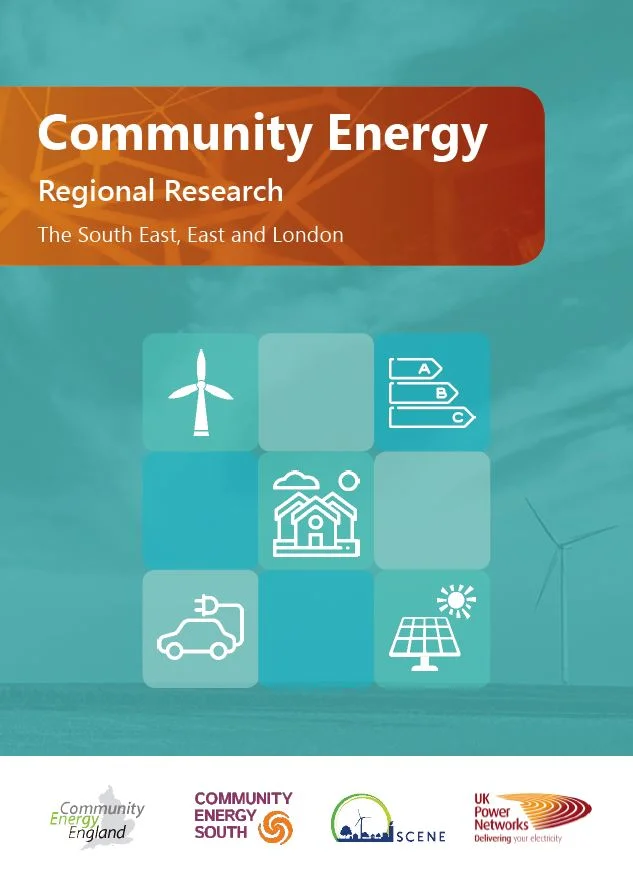During the first quarter of 2021, Scene conducted its first ever carbon emissions audit.The assessment integrated data from the company's office energy use, emissions associated with project travel and staff commuting, equipment purchases, and working-from-home during the COVID-19 pandemic. The results of the audit informed the creation of Scene's Net-Zero emissions ambitions, and lead to development of a new Carbon Consultancy workstream.
The 'Saline Aquaculture Network in Ghana' project will establish a network of regenerative saltmarsh and aquaculture sites along the coast of Ghana, exploring the growth of high-value halophytic crops for local farmers as well as providing a host of ecological benefits such as coastal flood-mitigation, carbon capture, and ecosytem restoration.
In partnership with Heriot-Watt University, Findhorn Innovation Research & Education, Environmental Design Solutions and Auroville Consulting, Scene is developing a novel control system capable of accessing flexibility from existing residential air conditioning (AC) systems in India.
The Perth Smart Energy Network (Perth SEN) will extend Scene's existing ZUoS energy services platfom and implment it across two buildings in the local area. The platform will allow the Council to monitor and trade energy between unconnected buildings, assets, and energy technologies, incoprorating asset control and demand-side response in order to improve renewable energy uptake, reduce energy costs and generate additional revenue.
Alongside Takazuri, Scene will be exploring a circular economy model that deploys disruptive manufacturing technology and converts waste into innovative long- life products with huge commercial potential for domestic and international markets in Kisii, Kenya. The project will support the existing informal workforce while also creating formal employment opportunities, and promoting product innovation while taking care of the environmental impact.
Scene provided consultancy services for a solar PV generation and battery storage development at The Gallops farmland in Sussex. The project involved end-to-end development services including: an initial feasibility, energy and modelling assessment, in-depth financial assessment, detailed Solar PV system design, planning and construction management.
On behalf of Falkirk Council, Scene is commissioned to oversee a feasibility assessment for solar PV installations across the Scottish town of Grangemouth. The project will explore a shared community ownership model, to provide financial and social benefits directly to the local community as well as contributing to a local authority net-zero carbon emissions target.
The 4th annual Community Energy - State of the Sector 2020 research project was launched in January 2020. The 2020 report comes at a time of change in the UK low carbon sector, with the closure of the Feed-in and Export Tariff schemes altering the landscape for small to medium scale energy generation. These changes come alongside a wider sectoral shift towards a more decentralised and digitised approach to low carbon development across the UK.
Building on the results of the EMBLEM energy trading trials on the Isle of Iona, EMBLEM 2 will now test the feasibility of a local peer-to-peer energy trading market to tackle the energy trilema in Rwanda and Nepal.
In partnership with Farm-Hand, Futurepump and the Gulu Agricultural Development Company, Scene is trialling a smart irrigation tool in northern Uganda - REFRUIT (Resource Efficient Farming by Renewable Uganda Technology). Informed by participatory workshops with regional smallholder farmers, REFRUIT will use hyper local day-ahead weather forecasting to deliver the right amount of water at the right time, through a solar-powered water pump.
Scene will deliver a feasibility study to assess the potential to install a community-owned district heating scheme on the site of the former Brymbo Steelworks. This system could supply renewable heat to a new housing scheme, a number of public properties (school, community centre, medical centre) and commercial units adjacent to the site in addition to restored heritage buildings. Dialogue with the Brymbo Heritage Trust and other stakeholders will ensure that the study outcomes are aligned with local priorities.
On behalf of the South Seeds community-led sustainability charity, Scene is undertaking the necessary feasibility assessments, graphical noise and visual impact modelling, and turbine designs for up to 3 community wind turbines in East Renfrewshire, just south of Glasgow.
For the third year running, Scene have been working in partnership Community Energy England to deliver the Community Energy State of the Sector Report 2019. This research provides an overview of the community energy sector in England, Wales and Northern Ireland. It is the most comprehensive evaluation of the community energy sector and provides a quantitative basis for the ongoing support of, and advocacy for, community energy in the UK.
Building on the State of the Sector 2018, Scene partnered with Community Energy England and UK Power Networks to investigate community energy at a greater resolution. The research focuses on the regional electricity grid managed by UK Power Networks, including the South East and East of England and London.
The Nano Membrane Toilet (NMT) currently being developed by Cranfield University has the potential to revolutionise the current system of sewage and treatment - it does not use energy or water. Scene and Practical Action Consulting (PAC) have teamed up to 1st stage route-to-market strategies to Cranfield University in deploying NMT in urban areas in Nairobi, Kenya.
Scene in collaboration with Locogen, Enbala and Mentone Energy are developing Cloud ZUoS - a market coupled virtual power plant that facilitates local energy trading alongside IoT appliance and DER asset control services for consumers, generators, storage providers and network operators.
The ENBIO project, funded by Zero Waste Scotland, investigates the use of renewable energy for algal bio-production to enable new industry in rural areas and increase the strength of the rural circular economy. Scene Connect has been commissioned by ENBIO lead ALienergy to build an economic assessment tool that looks at powering Xanthella’s algae production system with community renewable energy in the Scottish highlands.
On behalf of Coigach Community Development Company (CCDC), Scene are undertaking an options appraisal and feasibility study for the local supply of locally generated energy. CCDC are stakeholders in both a local hydro scheme and wind turbine.
Scene have been working in partnership with Community Energy England to deliver the second edition of the Community Energy State of the Sector Report 2018.
This research provides an overview of the community energy sector in England, Wales and Northern Ireland. It is the most comprehensive evaluation of the community energy sector and provides a quantitative basis for the ongoing support of, and advocacy for, community energy in the UK.
Most of renewable energy growth has occurred among variable technologies (wind power and solar PV), raising concerns about integrating large shares of variable generation into power systems. Establishing Mutually Beneficial Local Energy Markets (EMBLEM) will test the feasibility of a pioneering energy trading system for local energy economies, that aims to be a cost-effective demand-response solution to securing efficient energy supply.





















